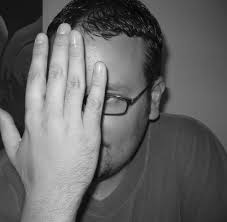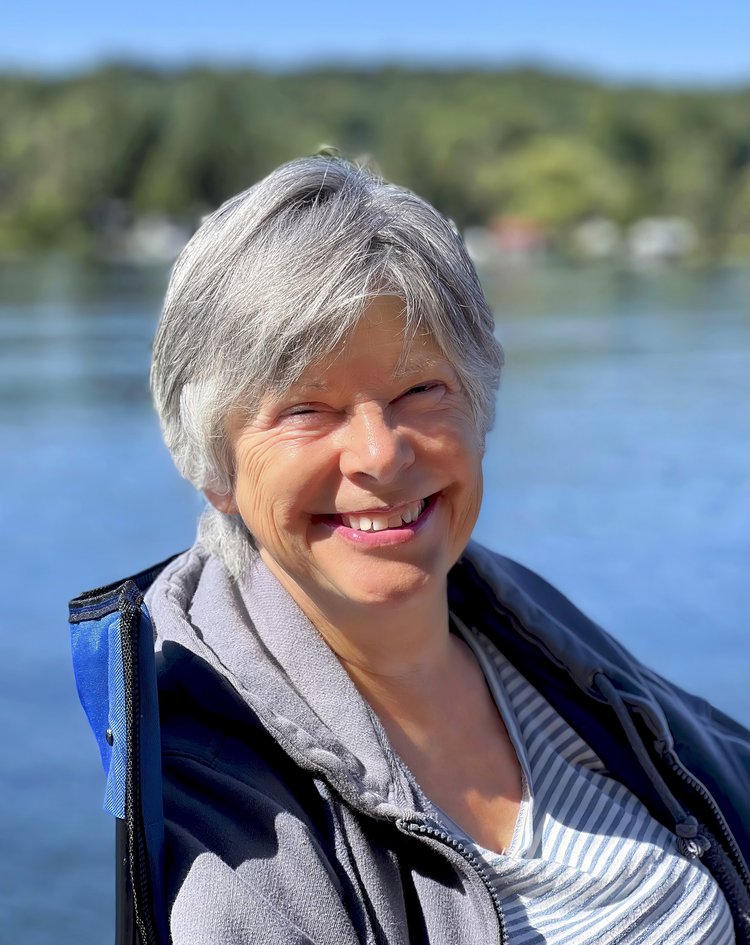Three converging things: 1) the note I keep on my desk, advice from Sokuzan, my Buddhist teacher: “Don’t conclude anything.” 2) an interview with Stephen Dunn in the new issue of The Georgia Review, and 3) a note from an editor rejecting the poems I sent him, saying: “they all share a common characteristic that tips the scale toward the Return side: some bits of summation/explication that are unnecessary and/or less interesting than the images and anecdotes and implied metaphors.” Stephen Dunn: “The poem might be smart, but who cares? It has to get away from itself.” I’m not sure I agree with the editor about these particular poems. Nevertheless, it's true I am an expert at logic (summation/explication). I was trained to be logical. I was rewarded for logic by the attention of my father. I was punished for the lack of it by eye-rolling distain. Maybe I’ve spent the last 30 years meditating to try to break out of that prison. The best I can say now is that I can see the prison of it. I see when the poem’s locked up. I see when my thoughts are locked up. I see when I can’t WAIT to artfully conclude the poem, to return it to its snug harbor.
1) the note I keep on my desk, advice from Sokuzan, my Buddhist teacher: “Don’t conclude anything.” 2) an interview with Stephen Dunn in the new issue of The Georgia Review, and 3) a note from an editor rejecting the poems I sent him, saying: “they all share a common characteristic that tips the scale toward the Return side: some bits of summation/explication that are unnecessary and/or less interesting than the images and anecdotes and implied metaphors.” Stephen Dunn: “The poem might be smart, but who cares? It has to get away from itself.” I’m not sure I agree with the editor about these particular poems. Nevertheless, it's true I am an expert at logic (summation/explication). I was trained to be logical. I was rewarded for logic by the attention of my father. I was punished for the lack of it by eye-rolling distain. Maybe I’ve spent the last 30 years meditating to try to break out of that prison. The best I can say now is that I can see the prison of it. I see when the poem’s locked up. I see when my thoughts are locked up. I see when I can’t WAIT to artfully conclude the poem, to return it to its snug harbor.  No matter that I’ve taught for years that a poem should skate out into a widening sky rather than tie itself into a nice neat bow. That it should open the mind, not satisfy the mind. You can’t will this to happen. Dunn says, “I have to discover what’s beyond what I wanted to say.” If you’re not a writer, hang on. I am thinking beyond making poems. Remember I was going to talk about aging? Aren’t old people supposed to have a few wise conclusions based on their long life? And politics. God knows I have conclusions, opinions.
No matter that I’ve taught for years that a poem should skate out into a widening sky rather than tie itself into a nice neat bow. That it should open the mind, not satisfy the mind. You can’t will this to happen. Dunn says, “I have to discover what’s beyond what I wanted to say.” If you’re not a writer, hang on. I am thinking beyond making poems. Remember I was going to talk about aging? Aren’t old people supposed to have a few wise conclusions based on their long life? And politics. God knows I have conclusions, opinions.  As Sokuzan says, conclusions are like holding your hand in front of your face. You see the conclusion, not the truth. The truth (now this is me talking) is slippery. Even in science, we know how slippery the truth is. Can’t pin it down. Opinions should probably be held lightly. Logical conclusions better come with a caveat. Dunn: “[I had] the wish to live a coherent life, one that made sense or would hold up. I gave that up; it was impossible.” Eavan Boland: "Poetry begins where certitude ends." With each surgery, Jerry and I both thought, okay, this is it. This will surely take care of the issues. Giving up on believing my own scenario has been really helpful. I do hope and expect that his pain and his mobility will improve, but this is our life, now, and who knows what the next day will be? Big sigh of relief in that, actually.
As Sokuzan says, conclusions are like holding your hand in front of your face. You see the conclusion, not the truth. The truth (now this is me talking) is slippery. Even in science, we know how slippery the truth is. Can’t pin it down. Opinions should probably be held lightly. Logical conclusions better come with a caveat. Dunn: “[I had] the wish to live a coherent life, one that made sense or would hold up. I gave that up; it was impossible.” Eavan Boland: "Poetry begins where certitude ends." With each surgery, Jerry and I both thought, okay, this is it. This will surely take care of the issues. Giving up on believing my own scenario has been really helpful. I do hope and expect that his pain and his mobility will improve, but this is our life, now, and who knows what the next day will be? Big sigh of relief in that, actually.  My junior high English teacher would give us extra credit for making booklets that illustrated and/or expanded on what we were studying in class. I realized very quickly that I could artfully paste some pictures, write a few captions, slap it all together, and get extra credit. Once I asked the art teacher to help me make a cover. She basically drew it for me. It was lovely, albeit not my work. Another few points of extra credit. At the time, my father made some scornful remarks about my not learning anything by this. He was right. It was a cheap cop-out and I knew it. So I bristled, of course. I have made poems like that. I have turned a poem loose at the exact point that I knew it was pleasing and/or funny, instead of keeping on to see what chaos might lie under it. I don’t know what can be done other than keep on keeping on, pushing the boundaries of the poem—or the essay—not giving up on it too soon. And pushing the boundaries of the mind by practicing listening well, making a deliberate intention to open rather than to close. It is entirely likely there are more things in heaven and earth, Horatio, than are dreamt of in my philosophy.
My junior high English teacher would give us extra credit for making booklets that illustrated and/or expanded on what we were studying in class. I realized very quickly that I could artfully paste some pictures, write a few captions, slap it all together, and get extra credit. Once I asked the art teacher to help me make a cover. She basically drew it for me. It was lovely, albeit not my work. Another few points of extra credit. At the time, my father made some scornful remarks about my not learning anything by this. He was right. It was a cheap cop-out and I knew it. So I bristled, of course. I have made poems like that. I have turned a poem loose at the exact point that I knew it was pleasing and/or funny, instead of keeping on to see what chaos might lie under it. I don’t know what can be done other than keep on keeping on, pushing the boundaries of the poem—or the essay—not giving up on it too soon. And pushing the boundaries of the mind by practicing listening well, making a deliberate intention to open rather than to close. It is entirely likely there are more things in heaven and earth, Horatio, than are dreamt of in my philosophy.
My Wobbly Bicycle, 154
in Archive
